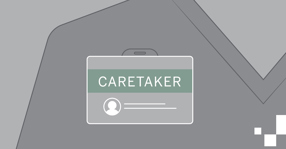We’re pleased to provide you with insights like these from Boston Private. Boston Private is now an SVB company. Together we’re well positioned to offer you the service, understanding, guidance and solutions to help you discover opportunities and build wealth – now and in the future.
When structured correctly, they are effective tools for asset protection and estate planning
When it comes to your investment portfolio, retirement assets, and estate planning, how do you protect your assets? Many people turn to a traditional trust for asset protection. However, there is another trust option that provides protection as well as additional flexibility in the realm of wealth transfer.
To help ensure your assets are well protected, we’ll discuss an increasingly popular strategy that you and your family can put to work – especially if your line of work raises your risk for personal lawsuits. Self-settled trusts, when correctly structured, can be an effective tool for wealth transfer as well as asset protection.
What is a self-settled trust?
These trusts, also known as domestic asset protection trusts, self-designated trusts, or spendthrift self-settled trusts, are irrevocable trusts that allow the grantor to also be a beneficiary of the trust. This differs from a typical irrevocable trust were the grantor creates a trust for the benefit of others.
The trust accomplishes this by dividing the legal and equitable titles of its assets between the trustee and the grantor/beneficiary. The appointed trustee holds the legal title of the trust’s assets, however is only able to distribute the assets to the beneficiaries in accordance with the trust terms. The grantor/beneficiary, in turn, holds equitable title to the trust assets but has no authority over the trustee to compel the distribution of funds.
In order to be valid, the trust needs to include a spendthrift provision. This provision prohibits beneficiaries from spending or borrowing against trust assets. Because the funds within the trust may not be spent by beneficiaries via a voluntary transfer, future creditors are prevented from accessing the trust assets and thus the assets are shielded from outside parties.
This type of trust must also adhere to the “self-settled” portion of its name in that the grantor/beneficiary must fund the assets of the trust.
What does a self-settled trust accomplish?
These types of trusts are unique in that they offer the advantages of conventional trusts while insulating the grantor from claims made on his or her assets. The grantor enjoys the traditional trust benefits such as reduction of tax liability, providing income for a surviving spouse, multi-generational wealth transfer as well as the protection of assets from creditors.
Their unique strength is their ability to define the grantor as a beneficiary and deny future creditors access to trust assets in the instance of a legal issue, for example. This can be especially beneficial for grantors employed in professions that are more likely to be subject to liability or contractual claims.
Provided that you are not subject to creditor clams when you create the trust, transferring assets into a self-settled trust can shield them from future creditors.
Who would benefit from this type of trust?
A self-settled trust’s unique grantor/beneficiary structure can be advantageous to two distinct groups of individuals. On the asset-protection side, individuals working in professions that suffer from above average personal liability risks can benefit from these types of trusts. Professionals in the following occupations may want to consider these trusts when developing their asset protection strategies:
- Business owners
- Traditional professional service providers in law, engineering and medicine
- Environmentally-focused professions such as real estate development
- Corporate officers and directors
Flexibility for individuals interested in significant wealth transfers is another area where these trusts shine. For example, a grantor who would like to make a wealth transfer to a future generation while ensuring a portion of their trust assets remain available for themselves can also benefit from these trusts. In this scenario, the trust would be structured so that the grantor/beneficiary would continue to receive funds for the remainder of his or her lifetime. Upon the death of the grantor, the remaining assets would be divided among the other beneficiaries named in the trust.
Be mindful of potential pitfalls
When establishing a self-settled trust, there are a few issues to keep in mind. First, consider the location of the trust. Although more states are considering legislation that would allow these trusts, only 17 states in the U.S. currently permit the establishment of these trust types. Given current laws, it is advisable for trust grantors to have a tangible connection to the state where the trusts will be established, if it is not the grantor’s primary residence.
Self-settled trusts also remain controversial because of the possibility of a grantor protecting his or her own assets from recovery by legitimate creditors. Because these trusts have not been examined by the U.S. Supreme Court, it is important to maintain strict adherence to all applicable state and federal laws when establishing the trust.
In summary
When they are established properly, self-settled trusts offer a powerful mix of personal asset protection as well as flexibility with large wealth transfers. These trusts can help safeguard individuals working in fields with higher than average risks of personal liability lawsuits. The trusts also provide for the smooth transition of wealth by allowing grantors to become beneficiaries of their trusts and enjoy the same privileges as the other trust beneficiaries.
Because of their complexity, it is critical that self-settled trusts be prepared by team with trust and estate planning experience as well as expertise and an intimate understanding of the latest state and federal legislation.
For additional information
When helping clients pursue their financial goals, we employ a diverse team of professionals to bring the custom-tailored services of a boutique wealth management firm to life. When it comes to execution, we provide the resources and technology of a large financial institution.
We provide access to a full spectrum of wealth, trust and banking services. If you have been looking for a meaningful relationship with a wealth advisor who has the experience, expertise and resources needed to assist you with complex financial solutions, contact us today.
















